
Dulwich College Suzhou proudly stands as the leading IB school in China, with its International Baccalaureate Diploma Programme (IBDP) graduates achieving an impressive average score of 37.6 out of 45. Demonstrating consistent academic excellence, the Class of 2024 marks the second consecutive year the college has celebrated a perfect score of 45/45. Dulwich College Suzhou is delighted to rank #1 among all IB schools in China!
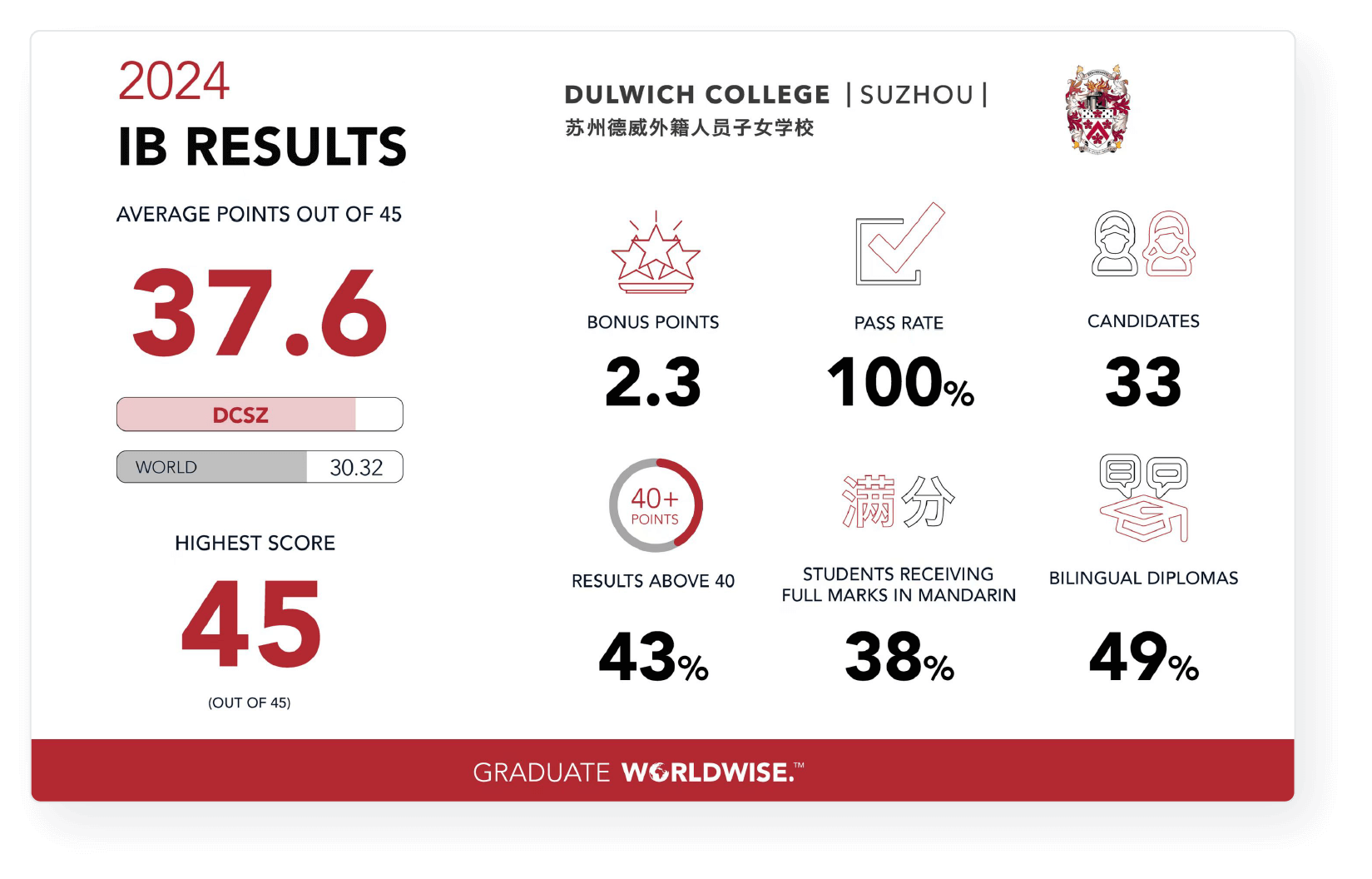
Why did we introduce a career-focused pathway?
At Dulwich College Suzhou (DCSZ), we take great pride in providing an education that meets the needs of our entire school community. As a well-established International Baccalaureate Diploma Programme (IBDP) school, we offer a high-quality, holistic, broad curriculum that encourages students to explore their passions across various subjects and components. With the IBDP, alongside our IB Courses and DCSZ High School Diploma pathways, we believed we had created a set of curricula offerings that fully supported our post-16 student population.
However, a few years ago, we asked ourselves an important question: What about students with a clear vision of their passions, strengths, and future career paths? While our existing pathways allowed for broad academic rigour, flexibility and exploration, we recognised that some students needed more specialised pathways to provide the deep, contextual learning they craved. Those with a crystal-clear direction deserved a more tailored, academically rigorous experience directly supporting their further study and career aspirations.
This reflection led us to introduce the International Baccalaureate Career-related Programme (IBCP), a decision that has not only transformed our post-16 curricula offerings but has also positively influenced our Year 7 to Year 11 (Grade 6 to Grade 10) student experience.
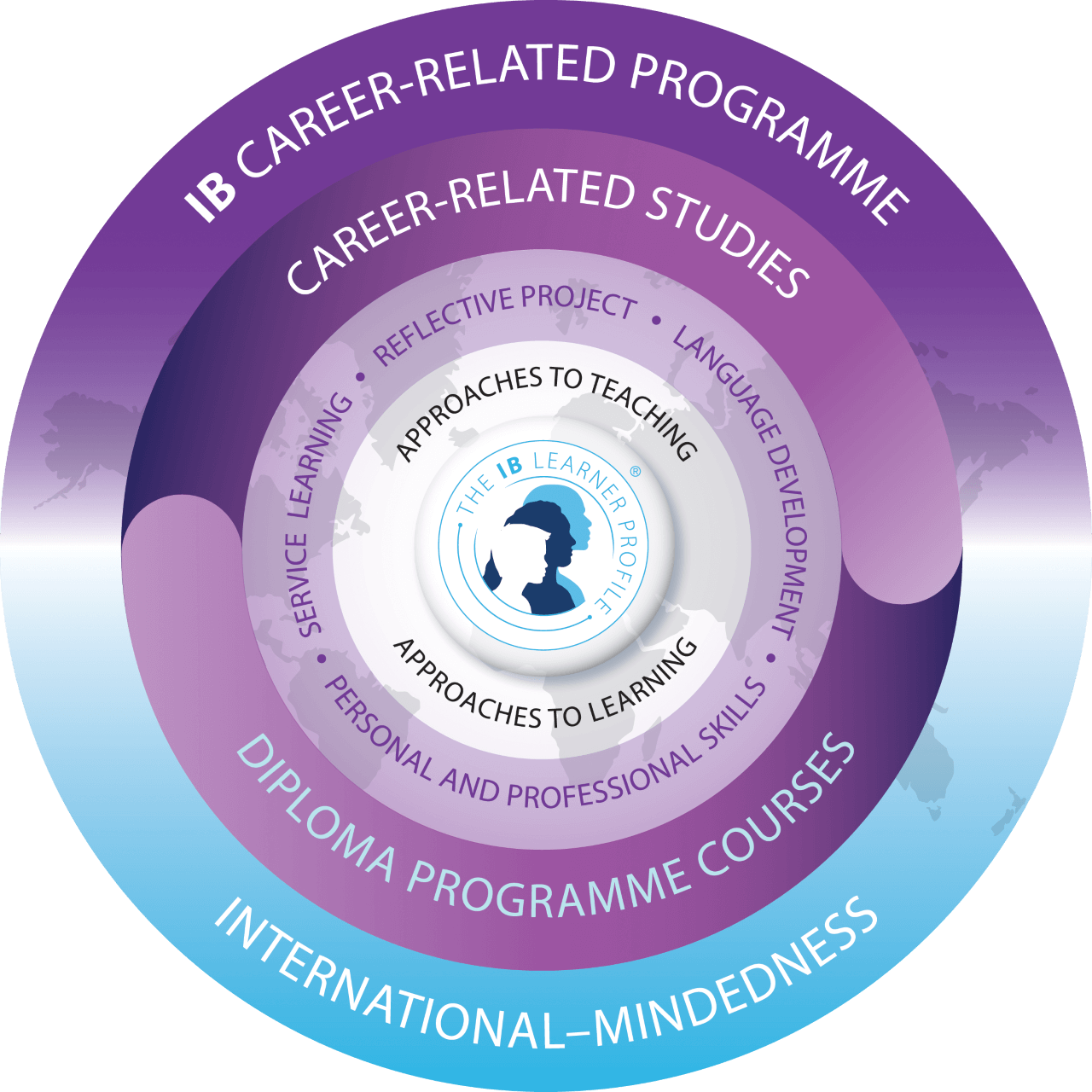
What are the benefits of implementing a career-focused pathway?
Through the IBCP, students can complete up to eighteen months of undergraduate coursework before graduating from DCSZ, giving them a significant head start in their university studies and careers.
More importantly, IBCP students engage in learning directly relevant to their passions and future goals, fostering deeper motivation, personal fulfilment, and academic success. By implementing a more personalised and purpose-driven curriculum pathway in Years 12 and 13 (Grades 11 and 12), we empower students to take ownership of their learning, equipping them with the skills and experience needed to thrive in higher education and beyond.
The introduction of a career-focused pathway has also led to the following benefits at DCSZ:
- Greater engagement with our student and parent communities as they provide crucial input that supports us in deciding which career pathways to introduce in the coming years
- More student agency and choice with the plethora of options now available in Years 12 and 13 (Grades 11 and 12)
- The creation of a more thorough and supportive IB options process to help students determine the best programme and pathway to achieve their specific goals
- Innovations to our curricula offerings in Years 7 to 11 (Grades 6 to 10) that focus on allowing students to explore different career paths and reflect upon their own skill sets, passions and aspirations for their personal and professional lives
- The ability to leverage the expertise of our university and industry partners in:
- All curriculum areas
- Staff professional development
- Expanding our network of internship providers
- By incorporating university partners through the IBCP, we have been able to provide:
- Substantial savings in university tuition costs to our school community
- The highest level of expertise in subject content for our Year 12 and 13 (Grades 11 and 12) students as they learn from university professors at excellent institutions
For me, the difference between an IBDP school and an IBDP/CP school is the difference between meeting the needs of most of your school community and meeting the needs of your entire school community.
I firmly believe that a career-focused pathway, such as the IBCP, is a necessity in a modern-day high school if it aims to meet the needs and aspirations of its entire student body.

How do we distinguish between the IBDP and IBCP?
To clearly and effectively communicate the purpose of the IBDP and IBCP, we do the following:
- Embark upon an extensive IB options process that begins at the end of Year 10 (Grade 9), involving students and parents
- Regularly engage with the student and parent communities from Years 7 to 11 (Grades 6 to 10), explaining the vertical alignment of our curriculum
- Support all teaching, admissions and marketing staff in developing their understanding of our curricula offerings, especially the role of the IBDP and IBCP within our school community. This is crucial for consistency and continuity in our messaging
- Provide clear comparison points that are easy to remember and understand, such as:
- The IBDP is academic and broad in nature
- The IBCP is academic and specialised in nature
- The IBDP is for students still exploring their passions and areas of expertise
- The IBCP is for students with a clear area of expertise and a strong vision for their future career
- The IBDP and IBCP are both academically rigorous programmes of learning with similar overall time commitments
It is essential to achieve a shared understanding of each programme's purpose across the entire school community. This ensures students access the programme that best aligns with their aspirations and passions.
University and Industry Partnerships
At DCSZ, our IBCP pathways are delivered in collaboration with leading universities and industry partners, providing students with specialised learning experiences in high-demand fields. Our current partners include:
- Embry-Riddle Aeronautical University (ERAU)
- Savannah College of Art and Design (SCAD)
- Les Roches
- World Academy of Sport (WAoS)
- Sustainability Management School (SUMAS)
- Arizona State University (ASU)
These partnerships were carefully curated to align with the career interests of our student body, and we will continue to expand these opportunities in the coming years.
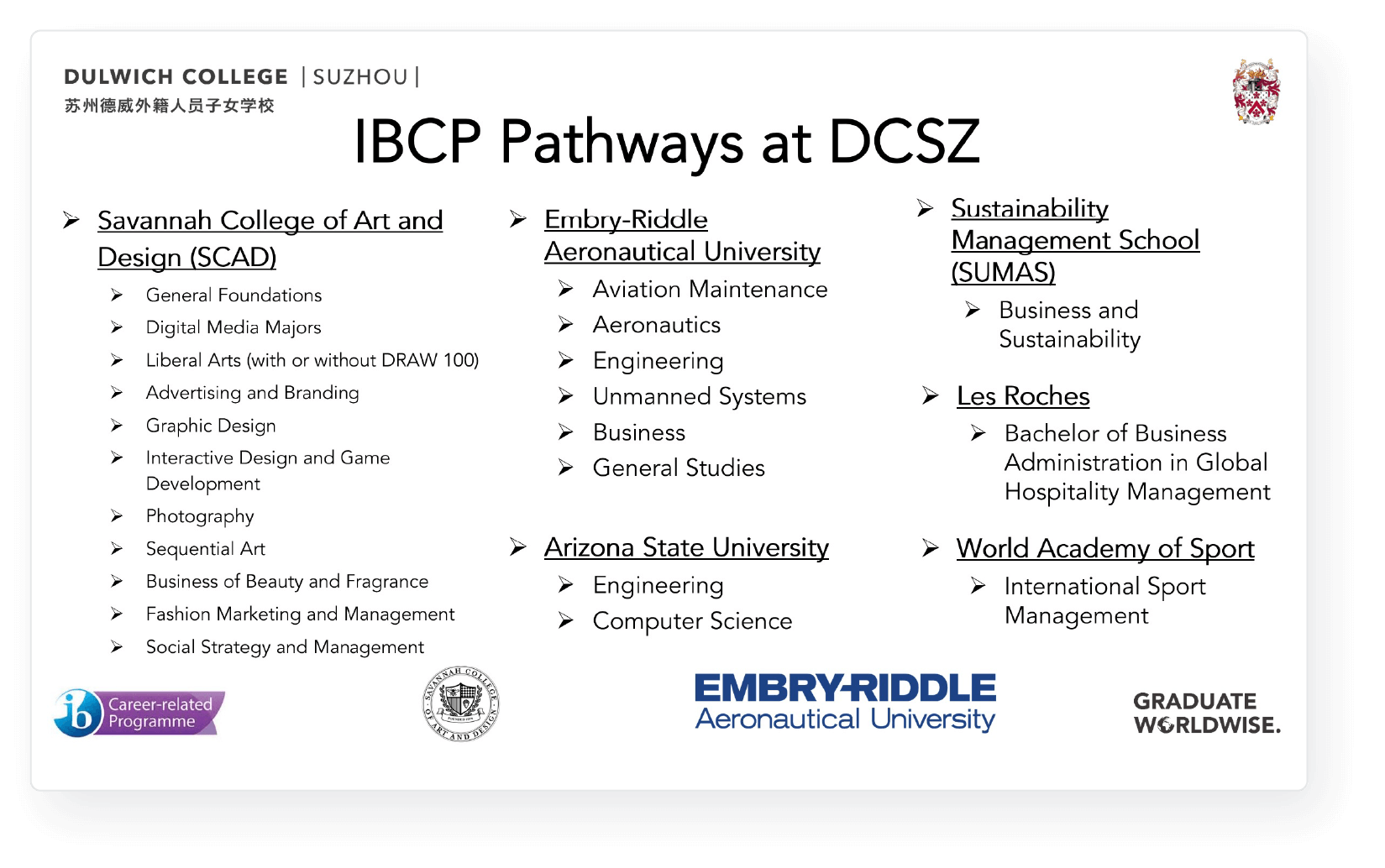
Frequently Asked Questions
[et_pb_accordion open_toggle_text_color="#333333" closed_toggle_background_color="#fafcff" module_class="accordion-faqs" _builder_version="4.27.3" _module_preset="default" toggle_level="h4" toggle_font="|700|||||||" toggle_font_size="16px" body_text_color="#666666" body_font_size="16px" body_line_height="24px" custom_margin="||42px|||" body_font_size_tablet="14px" body_font_size_phone="14px" body_font_size_last_edited="off|desktop" custom_css_toggle="box-shadow: unset;" custom_css_open_toggle="box-shadow: 0px 9px 14px -4px #336DCD1A, 0px 0px 1px 0px #336DCD4D!important;||" border_radii="on|12px|12px|12px|12px" border_color_all="#d0eafb" box_shadow_style="preset1" box_shadow_blur="4px" box_shadow_color="rgba(51,109,205,0.2)" locked="off" global_colors_info="{}"][et_pb_accordion_item title="Can non-CP schools create partnerships with university and industry providers like those mentioned above? " open="on" _builder_version="4.27.3" _module_preset="default" global_colors_info="{}"]Yes! As long as schools can incorporate these partnerships and opportunities into their curriculum models, students can access these wonderful learning experiences.
[/et_pb_accordion_item][et_pb_accordion_item title="How can a non-DP school introduce a career-related pathway (even without the complete CP programme)? " _builder_version="4.27.3" _module_preset="default" global_colors_info="{}" open="off"]The process is much the same for any school looking to introduce a career-related pathway, whether they use the CP framework or not. The school should:
- Identify which undergraduate degrees and careers are most sought after by their students.
- Identify and explore educational partners and/or additional curriculum options that could enhance and personalise a student's experience when preparing for their chosen undergraduate degree and future career.
- Implement a programme of learning which incorporates essential academic knowledge (DP subjects), specialised career-related learning (CRS), and holistic development and growth (IBCP core).
- Where possible, repeat this process for all highly sought-after careers within their school to meet their students' needs.
Yes! The exposure to career-related learning allows IBCP students to engage deeply with their proposed future career fields and find out exactly what interests them and what doesn’t. This immersive exploration of their chosen career field can help them narrow down their future major and potential role within their chosen career field.
[/et_pb_accordion_item][et_pb_accordion_item title="What is a typical outcome for a CP graduate? " _builder_version="4.27.3" _module_preset="default" global_colors_info="{}" open="off"]Using the DCSZ IBCP example, a typical outcome is for a CP graduate to matriculate straight into the second year of university, fast-tracking their undergraduate studies by one year. This usually comes with substantial scholarship offers, but that is entirely grade and university-dependent. As the CP can look different from school to school, this answer is specific to the Dulwich College Suzhou version of the CP explored above.
[/et_pb_accordion_item][et_pb_accordion_item title="What is the workload like for schools considering starting a career-related programme? " _builder_version="4.27.3" _module_preset="default" global_colors_info="{}" open="off"]This is dependent on a few factors:
- How many career-related pathways will the school introduce?
- Do they want to teach those pathways themselves, or will they use industry and university partnerships?
- Do they have staff members familiar with creating career-related programmes? If not, do they have the budget to hire a knowledgeable expert to lead the implementation of their career-related programme? Or do they have the professional development budget to upskill current staff so they can lead this initiative successfully?
Ultimately, the workload for schools will depend on their vision, chosen modality of learning, and staffing model/expertise. The IBCP can be implemented in a way that requires several members of full-time staff or in a way that requires no full-time IBCP-specific members of staff (which doesn’t translate to a lesser product if done correctly).
In terms of a timeline to introduce a career-related programme, this can take anywhere between eight months and two years, depending on the factors mentioned above and the urgency of the need within the school.
[/et_pb_accordion_item][et_pb_accordion_item title="What do parents think about the IBCP? " _builder_version="4.27.3" _module_preset="default" global_colors_info="{}" open="off"]When the IBCP is introduced at a school, parents often approach the programme with scepticism. This is entirely understandable as, compared to the IBDP, the IBCP is still relatively unknown. However, parents change their opinion quickly when they hear of the benefits listed earlier in the article and realise the great potential of the IBCP and the opportunities it can provide for their children. The growing positivity within a new CP school often skyrockets after the university offers of the first IBCP graduating cohort are published, highlighting offers for second-year entry alongside substantial scholarships (grade and university-dependent).
[/et_pb_accordion_item][/et_pb_accordion]What else do you want to know about IB CP or career-related pathway? Fill out the survey below to engage with the author.

About The Author

IBDP and IBCP Coordinator
Stewart is an experienced IBDP/CP Coordinator with nearly a decade of expertise in implementing the International Baccalaureate Career-related Programme (IBCP) across multiple schools in the Asia-Pacific region. As a member of the IB Educator Network (IBEN), he has contributed as a workshop leader for the IBDP and IBCP and played a key role in curriculum development for the Personal and Professional Skills component and IB Professional Development workshops. Stewart has also presented at two IB Global Conferences, leading workshops on IBCP implementation.
Passionate about the transformative power of career-focused pathways in post-16 education, Stewart believes the IBCP framework provides an ideal structure for schools to develop highly specialised, tailored, and academically rigorous pathways that contribute to meeting the diverse needs of their communities.
Managing CP with ManageBac An all-in-one solution for managing your Career-Related Programme (CP). ManageBac provides a mission control for your Career-related Programme Core (RP, PPS, SL, LD) and streamlines all aspects of IB CP coordination from course planning to IBIS exam registration, through to IA management and seamless eCoursework submission.
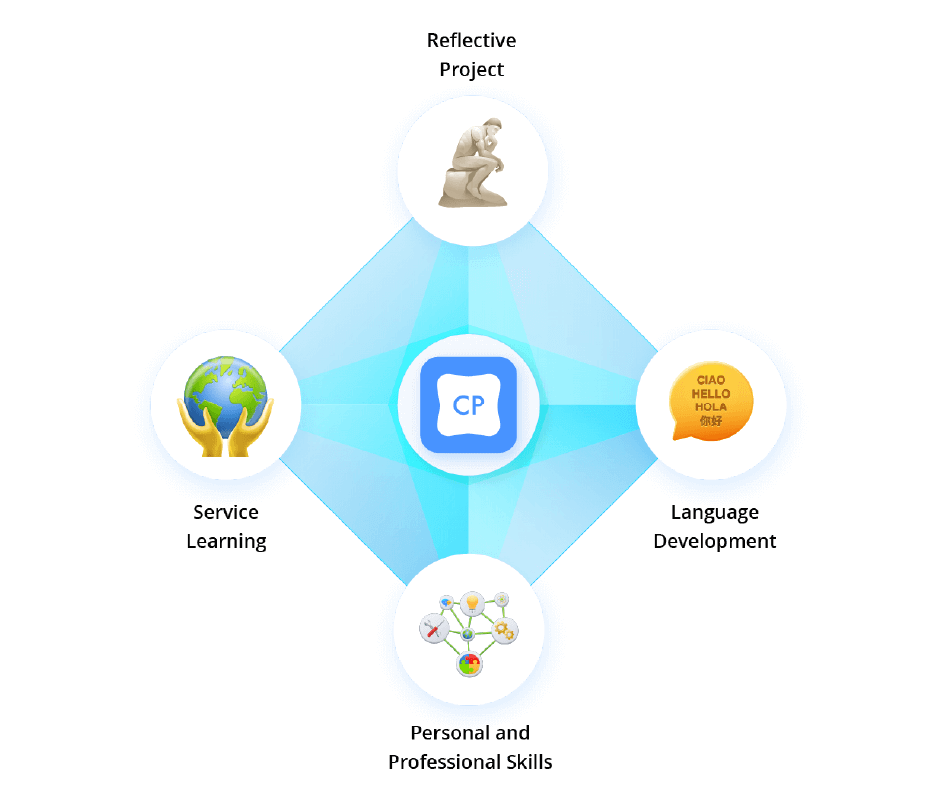
Manage CP Core Courses with MB
Track Progress- Easily view students’ overall progress in CP Core Courses.
- Gain deeper insights into each student’s learning with customized, course-specific views.
- Identify students who may need additional support or intervention to ensure they stay on track.
- Students can utilize various evidence types to showcase their learning.
- Journal entries can capture their thoughts, reflections, and learning process.
- Websites can demonstrate their research and exploration of relevant topics.
- Photos can document their hands-on experiences and projects.
- Files can include their assignments, reports, and other relevant materials.
- Export a consolidated PDF portfolio for easy presentation of learning achievements.
- Students can write journal entries related to specific learning outcomes.
- Encourage them to reflect on their learning experiences, accomplishments, and challenges.
- Promote a deeper understanding of the learning content and personal growth.
- Students can easily log the details of their service-learning experiences.
- Include date, time, location, activity, and reflection.
- Request approval from the Service-Learning Coordinator or Advisor for a streamlined process.
- Track and record service-learning hours to ensure students meet the requirements.
- Review and approve students’ reflection project proposals.
- Record interview notes for reflection projects with students.
- Set due dates and to-dos for reflection projects for students.
- Students can submit their reflection project files through Turnitin integration, to check the originality of student reflection project files.
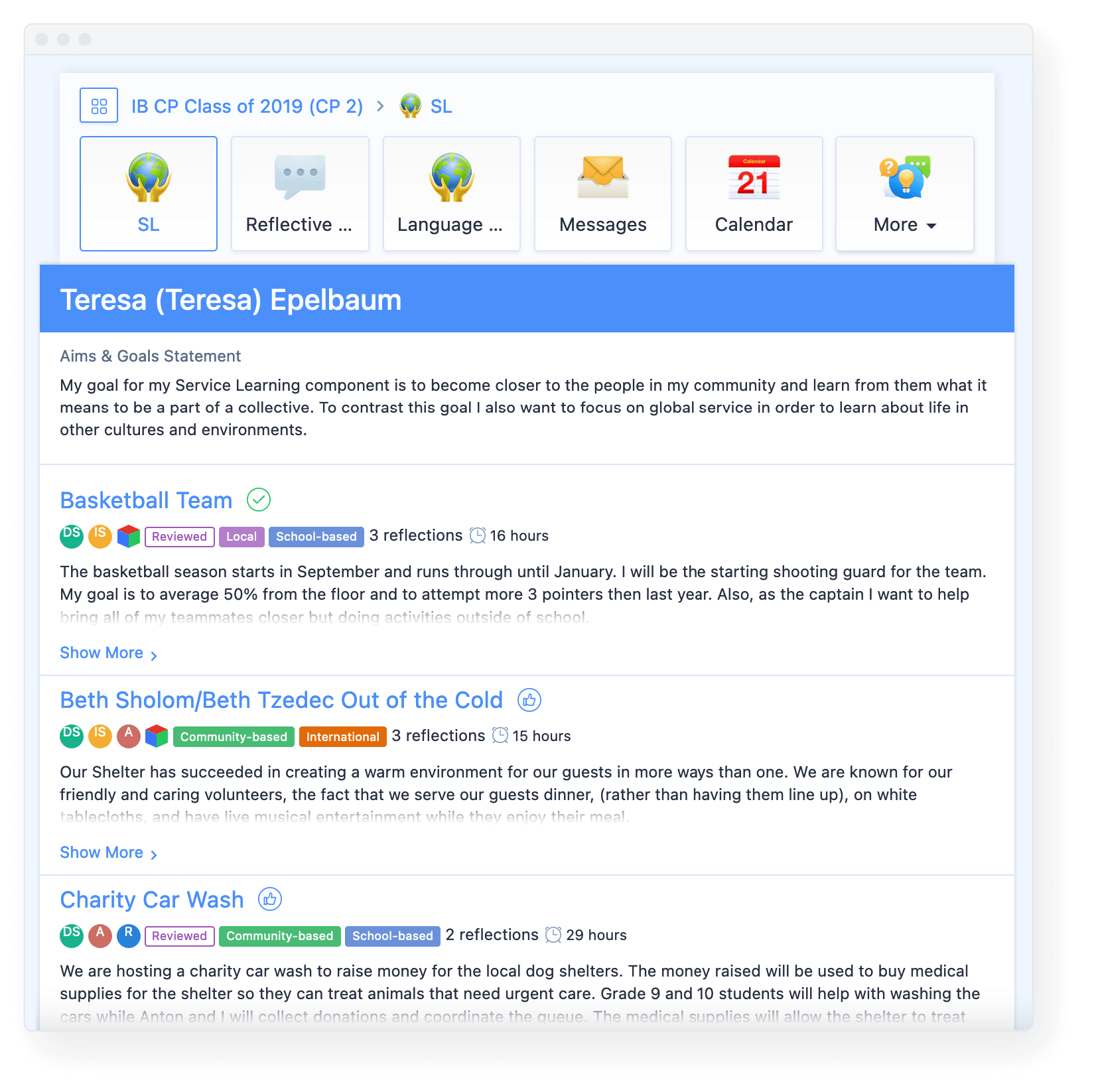
Want to know more about ManageBac in a demo? Sign up here!

The Learning Management Digest
Subscribe today to receive our latest resources, events, updates and so much more – specially curated for you, and delivered straight to your inbox.

